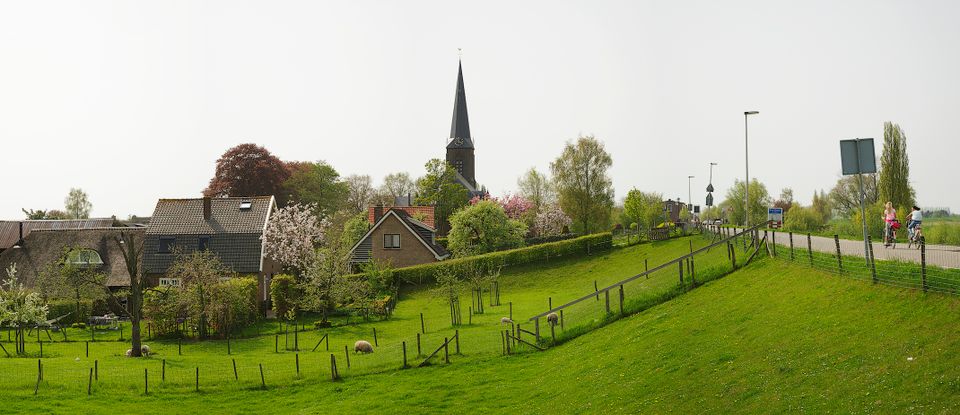
The village of Everdingen is probably originated on a narrow bank on the Lek. The first cultivation of the landscape took place between the 11th and 13th Centuries and fits into the framework of the cope reclamations. The village grew in a T-shape along the Lek Dike and Graaf Huibertlaan. In the centre of the village lies the mediaeval church, which was founded in the 13th Century.
The name Everdingen certainly goes back to the 13th Century. In the year 1284, the five Lords of the later Vijfheerenlanden held a meeting in the church of Everdingen to sign agreements on peat drainage and dike maintenance. The area was ruled by the Van Everdingen family. They were probably related to the Van Beusichems and their name was derived from the village.
In the 14th C…
The village of Everdingen is probably originated on a narrow bank on the Lek. The first cultivation of the landscape took place between the 11th and 13th Centuries and fits into the framework of the cope reclamations. The village grew in a T-shape along the Lek Dike and Graaf Huibertlaan. In the centre of the village lies the mediaeval church, which was founded in the 13th Century.
The name Everdingen certainly goes back to the 13th Century. In the year 1284, the five Lords of the later Vijfheerenlanden held a meeting in the church of Everdingen to sign agreements on peat drainage and dike maintenance. The area was ruled by the Van Everdingen family. They were probably related to the Van Beusichems and their name was derived from the village.
In the 14th Century, Everdingen, with the castle of Everstein next to it, together with Gasperden (present-day Hagestein), formed an important strategic fortress on the Arkel line. In the year 1405, Everstein Castle was completely destroyed, just as Hagestein Castle had been before it. In the following centuries, the precise location of the castle was lost. It’s generally assumed that the castle was situated outside the dikes at the junction of the Lek Dike and Graaf Huibertlaan.
Further reading: Hagestein village centre, Fort Everdingen, Rustenburg farm, Essensteyn farm, Cope reclamation, Petrus and Pauluskerk Everdingen.
